 Шехзаде Джихангир был показан в сериале Великолепный век, как очень добрый и ранимый молодой человек. Он любил книги, был очень умным и образованным. От всех своих старших братьев он отличался исключительной мудростью.
Шехзаде Джихангир был показан в сериале Великолепный век, как очень добрый и ранимый молодой человек. Он любил книги, был очень умным и образованным. От всех своих старших братьев он отличался исключительной мудростью.
С самого рождения шехзаде Джихангир был серьезно болен. Ему неповезло родиться горбатым. Этот врождённый порок досталял ему сильные физические страдания на протяжении всей его жизни.
Из-за своей болезни Джихангир не мог состязаться со своими старшими братьями во владении мечом и боевыми навыками.
Этот шехзаде совсем не воин. Поэтому во время своей присяги перед янычарами он забывает слова клятвы. Ему совершенно непонятен их смысл.
Ранимый душой, он в то же время был очень мудрым не по годам. У него глубокие умственные способности и широкий кругозор. Очень любит своих братьев. Особенно Мустафу, со смертью которого он так и не смог смириться и вскоре умер следом за ним.
Этого Джихангира мы знаем из сериала Великолепный век. Давайте же узнаем каким был настоящий шехзаде Джихангир.
Биография шехзаде Джихангира
Шехзаде Джихангир появился на свет в 1531 году, в Стамбуле. Он был самым младшим сыном Сулеймана и Хюррем. И он был их единственным ребенком в этой семье, который родился в законном браке.
Несомненно, рождение Джихангира стало ещё одним счастьем в семье султана. Но вскоре оно было омрачено печальным известием о неизлечимой болезни маленького шехзаде.
Хюррем султан сильно переживала о том, что Сулейман станет обвинять её в болезни сына. Более того, она переживала, что муж отвернётся не только от неё, но и от их больного сына, который больше всего нуждался в заботе и защите. Но, как оказалось, Хюррем переживала напрасно.
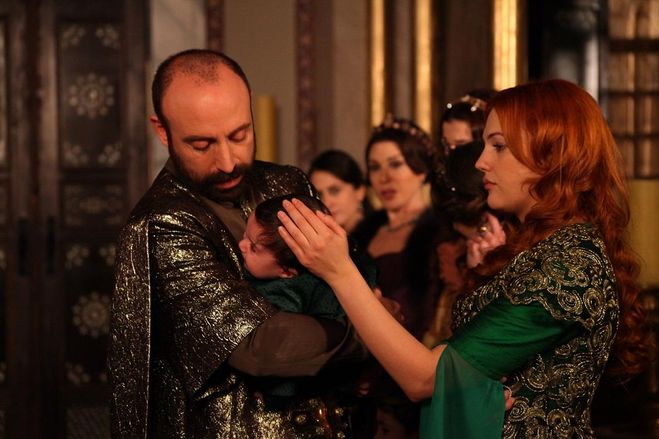
Как и за остальными султанскими детьми, за шехзаде Джихангиром присматривали дворцовые слуги. Они следили за его безопасностью и занимались его воспитанием.
Из-за сильных болей, с малого возраста этот шехзаде вынужден был быть терпеливым. Искривление позвоночника сильно ограничивало его физические возможности. Он не мог, как его старшие братья, посещать занятия боевого искусства. Обладая внутренней силой, чтобы преодолевать боль, он был очень слаб для того, чтобы держать в руках меч.
Ко всем его страданиям прибавилось и то, что на спине у него рос горб. По этой причине он сразу же был вычеркнут из списка претендентов на султанский трон. Управлять государством должен был только здоровый и сильный Падишах. Но как бы странно это не звучало, среди мусульманского народа находились те, кто считал, что шехзаде Джихангир был достоин управлять Османским государством.
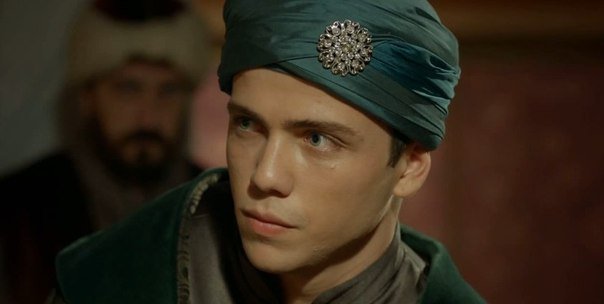
Его серьезный физически недуг не мешал ему наслаждаться маленькими радостями в жизни. Джихангир был очень творческим человеком и у него было много различных увлечений. Он с удовольствием проводил время занимаясь каллиграфией. Также он любил сочинять стихи под творческим псевдонимом Зафири, что с турецкого переводится как «элегантный».
На характер шехзаде Джихангир был добрым и мудрым человеком. Его современники отмечали его остроумие и умение поддержать любую беседу.
Венецианец Николо Михаэль описал внешность шехзаде Джихангира следующими словами: «Он был маленького роста и плохого телосложения, к тому же больным».
Родители очень любили своего младшего сына. Мать и отец никогда не оставляли его одного. Султан Сулейман часто брал Джихангира с собой в военные походы.
Отношения Джихангира с Мустафой

В сериале ярко показана нерушимая братская любовь и дружба между шехзаде Мустафой и Джихангиром. А потом в интернете люди стали обсуждать, что подобных отношений между этими братьями не могло быть. Главным доводом служила дата рождения Джихангира.
Шехзаде Джихангир родился в 1531 году. Шехзаде Мустафа на тот момент был уже 16-летним юношей. А в 1533 году, достигнув 18 лет, Мустафа отправился служить в Манису. Джихангиру было всего 2 года. Большинство подвергло сомнению, что за два года между братьями могла появиться такая прочная связь.
Но историками была обнаружена интересная стихотворная переписка. И в ней было три участника: Султан Сулейман, шехзаде Джихангир и шехзаде Мустафа. Это говорит о том, что братья всё же общались. Может быть где-то хранятся письма их личной переписки.
К тому же братья могли видеться во время военных походов, ведь Сулейман брал Джихангира с собой. Так же они могли встречаться на дворцовых торжествах, когда султанская семья собиралась в полном составе.
Ещё одним доказательством близких братских отношений Джихангира и Мустафы была ссора, которая произошла спустя несколько дней после смерти Мустафы. О ней рассказал венецианец Николо Михаэль. Когда Султан Сулейман вместе с шехзаде Джихангиром отправился на конную прогулку, Джихангир сказал отцу, что он слишком жесток. В ответ на это Сулейман в гневе отругал своего младшего сына.
Отношения шехзаде Джихангира и Сулеймана
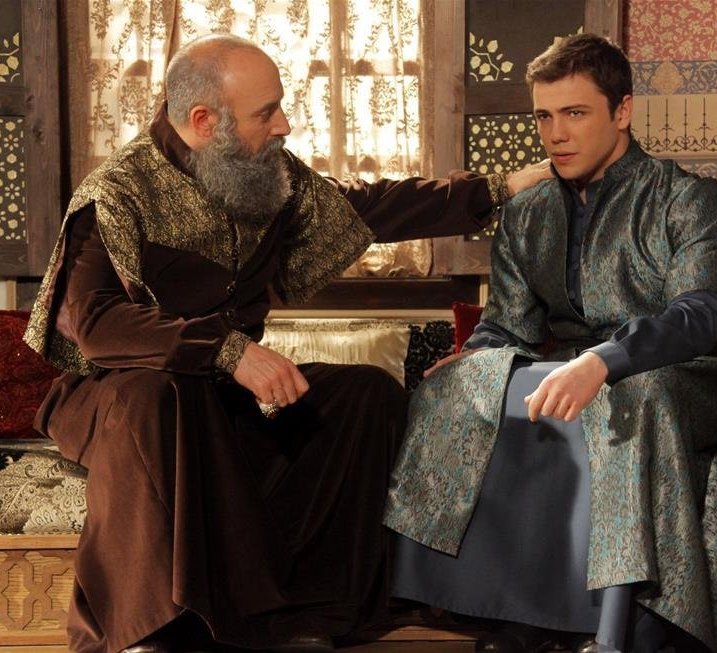
Не смотря на то, что Джихангир был отстранён от престола, Сулейман никогда не пренебрегал им. Сулейман очень любил своего сына. Он окружил его вниманием и заботой. При возможности они проводили время вдвоём в доверительной беседе на разные темы.
Сулейман попросил своего друга Ибрагима пашу найти лучшего лекаря в мире, чтобы вылечить сына.
В то время не было больниц и медицинских учреждений, которые лечили людей за счёт государства. Все лечебницы, которые тогда существовали, были либо коммерческими, либо благотворительными.
Ибрагим-паша был одним из тех, кто поддерживал развитие медицины в стране и выделял деньги на строительство больниц. Особенный интерес у него вызывали европейские лекари. Самым талантливым и выдающимся медиком Европы был Парацельс. В Османской империи ему не особо доверяли из-за его увлечения алхимией. Но благодаря таланту этого врача, в Османской империи всё же имелись его ученики.
Ибрагим был хорошо осведомлён о том, какие страдания вынужден терпеть младший сын Сулеймана. И он обратился к врачу Иерониму Наусу, одному из учеников Парацельса. После осмотра шехзаде, Иероним предложил провести процедуру растяжения позвоночника.
Лечение оказалось довольно эффективным. На какое-то время боли перестали беспокоить мальчика и он начал расти.
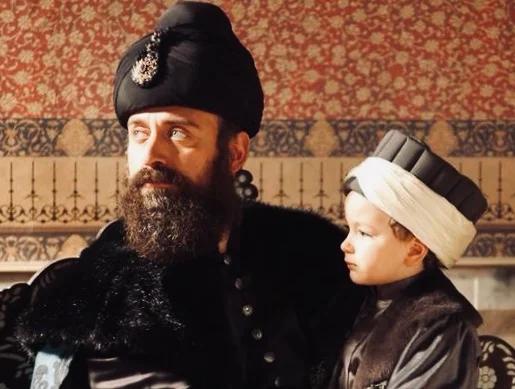
Перед братьями Джихангир имел одно преимущество — он мог выбирать любые науки, которые хотел изучать. Наставникам и учителям не нужно было стоять над ним и заставлять учиться. Он это делал сам и с удовольствием. Особенно ему нравились науки восточных мудрецов и философов. Для отца он был интересным собеседником.
Как известно, Сулейман много времени проводил в военных походах. Однажды он вернулся домой после долгого отсутствия. Султан был в прекрасном настроении. Как же он был приятно удивлен, когда вместо малыша, его встретил не по годам умный семилетний парень.
Отец был невероятно вдохновлен тем, что его самый младший сын обладает такими удивительными способностями. Сулейман до последнего верил в то, что у Джихангира будет светлое и великое будущее. Он не испытывал к нему унижающей жалости и не давал поблажек. Когда шехзаде Джихангир стал взрослым, Султан доверил ему огромный район Алеппо.
Шехзаде Джихангир и его юные годы
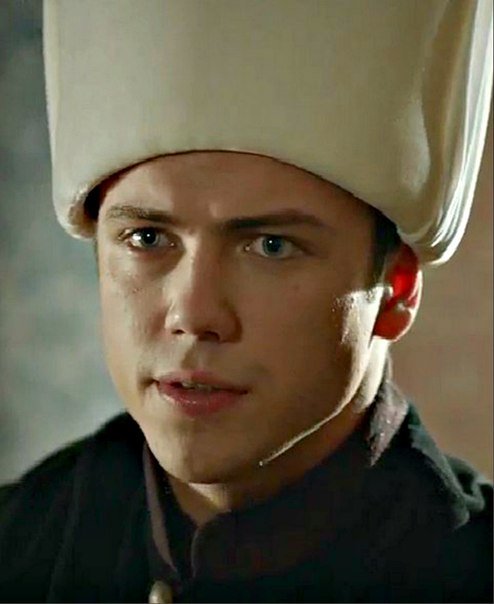
Джихангир переехал жить в Алеппо и сразу же приступил к своим обязанностям. В первую очередь он начал с восстановления города. Молодой и бесстрашный в своих решениях, он не боялся рисковать. В основном он с уверенностью решал вопросы экономики.
Жители Алеппо старались не ввязываться в военные передряги. Но не сторонились разборок с мамелюками.
Джихангир был прямолинейным правителем. И благодаря своему грамотному подходу к каждому делу, он заслужил уважение по всей округе. Однако промахи, которые случались, незамеченными не оставались. Сулейман всегда находил к чему придраться и сделать замечание. На то он и отец.
Шехзаде Джихангир и его семья
Султан Сулейман и Хюррем султан не желали, чтобы их сын дополнительно страдал от того, что он не такой, как его старшие братья. Поэтому, когда пришёл его черёд, для него был собран собственный гарем. В этот гарем вошло 16 девушек. Но только одна из них была особенной.
Эту девушку для сына готовила сама Хюррем. Она вяза её в гарем ещё маленькой девочкой и назвала её Джиган. Девочка получила самое лучшее индивидуальное образование. По личному приказу Хюррем она опытные лекари передавали ей медицинские знания, чтобы она могла ухаживать за шехзаде.
Джиган прекрасно справилась с поставленной перед ней задачей. Шехзаде Джихангир не признавал ни одну наложницу, кроме неё. Всё свое свободное время молодой человек стремился провести именно с ней. Девушка тоже полюбила шехзаде Джихангира. Но судьба выделила для них слишком короткий срок. И девушка жалела лишь о том, что они мало времени провели вместе.
Потомства шехзаде Джихангир после себя не оставил.
От чего умер шехзаде Джихангир
Джихангир постоянно подвергался давлению со стороны родных. А его больное тело постоянно испытывало сильную боль. И чтобы заглушить её шехзаде Джихангиру приходилось принимать опиум. Это вызвало привыкание.
Ещё по старой легенде, последним ударом для Джихангира стала казнь старшего брата Мустафы. С этим он не смог смириться и начал буквально угасать на глазах.
Через несколько недель после смерти брата, в ноябре 1553 года, Джихангир был найден мертвым у себя в резиденции. Зимой ему должно было исполнится 23 года.
Шехзаде Джихангира похоронили рядом с его родным старшим братом Мехмедом в мечети Шехзаде Мехмет джами.
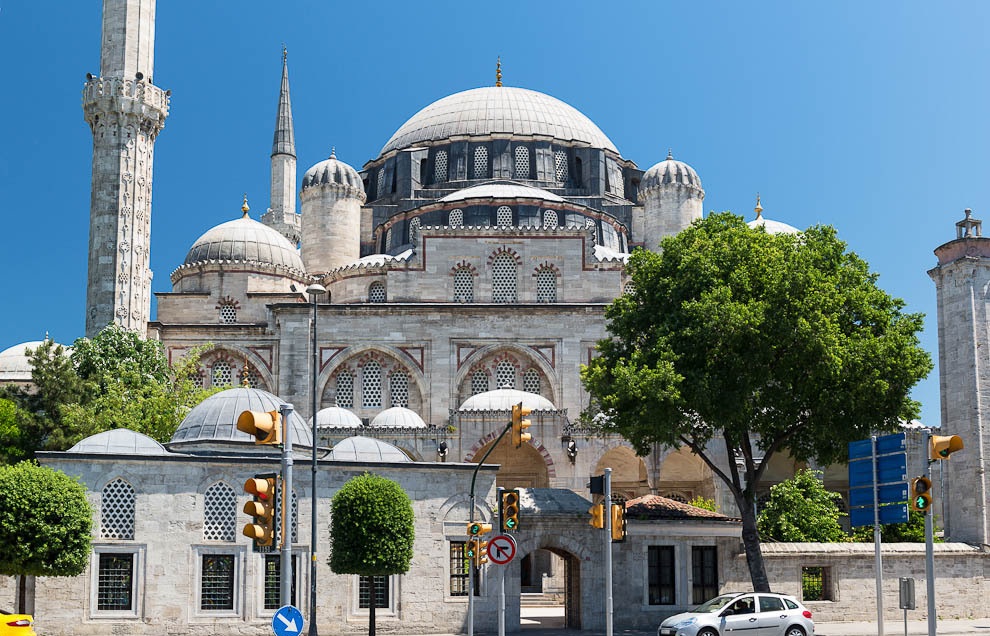
Shehzade Cihangir — son of Suleiman and Alexandra Anastasia Lisowska — biography
Shehzade Cihangir was shown in the TV series Magnificent Century as a very kind and vulnerable young man. He loved books, was very smart and educated. He differed from all his older brothers in exceptional wisdom.
Shehzade Cihangir was seriously ill from birth. He was unlucky to be born hunchbacked. This congenital defect caused him severe physical suffering throughout his life.
Due to his illness, Cihangir could not compete with his older brothers in swordsmanship and combat skills.
This shehzade is not a warrior at all. Therefore, during his oath before the Janissaries, he forgets the words of the oath. He does not understand their meaning at all.
Vulnerable in soul, he was at the same time very wise beyond his years. He has deep mental abilities and a broad outlook. He loves his brothers very much. Especially Mustafa, with whose death he could not come to terms and soon died after him.
We know this Cihangir from the series The Magnificent century. Let’s find out what the real shehzade Cihangir was like.
Shehzade Cihangir was born in 1531 in Istanbul. He was the youngest son of Suleiman and Hurrem. And he was their only child in this family, who was born in a legal marriage.
Undoubtedly, the birth of Cihangir was another happiness in the Sultan’s family. But soon it was overshadowed by the sad news of the incurable illness of the little shehzade.
Hurrem Sultan was very worried that Suleiman would blame her for her son’s illness. Moreover, she was worried that her husband would turn away not only from her, but also from their sick son, who most of all needed care and protection. But, as it turned out, Hurrem worried in vain.
Like the rest of the Sultan’s children, shehzade Cihangir was looked after by palace servants. They looked after his safety and took care of his upbringing.
Due to severe pains, from a young age, this shehzade had to be patient. The curvature of the spine severely limited his physical abilities. He could not, like his older brothers, attend martial arts classes. While possessing the inner strength to overcome pain, he was too weak to wield a sword.
To all his suffering was added the fact that a hump grew on his back. For this reason, he was immediately deleted from the list of contenders for the Sultan’s throne. Only a healthy and strong Padishah was supposed to rule the state. But no matter how strange it may sound, among the Muslim people there were those who believed that shehzade Cihangir was worthy to rule the Ottoman state.
His serious physical ailment did not prevent him from enjoying the small joys of life. Cihangir was a very creative person and he had many different hobbies. He enjoyed spending time doing calligraphy. He also liked to compose poetry under the creative pseudonym Zafiri, which is translated from Turkish as «elegant».
On the character of shehzade, Cihangir was a kind and wise man. His contemporaries noted his wit and ability to maintain any conversation.
The Venetian Nicolo Mikael described the appearance of shehzade Cihangir in the following words: «He was small in stature and of poor physique, besides, he was sick.»
The parents loved their youngest son very much. His mother and father never left him alone. Sultan Suleiman often took Cihangir with him on military campaigns.
The series clearly shows the unbreakable brotherly love and friendship between shehzade Mustafa and Cihangir. And then on the Internet, people began to discuss that there could not be such a relationship between these brothers. The main argument was the date of birth of Cihangir .
Shehzade Cihangir was born in 1531. Shehzade Mustafa at that time was already a 16-year-old boy. And in 1533, having reached the age of 18, Mustafa went to serve in Manisa. Cihangir was only 2 years old. Most questioned that such a strong bond could have developed between the brothers in two years.
But historians have discovered an interesting verse correspondence. And there were three participants in it: Sultan Suleiman, shehzade Cihangir and shehzade Mustafa. This suggests that the brothers still communicated. Maybe somewhere stored letters of their personal correspondence.
In addition, the brothers could see each other during military campaigns, because Suleiman took Cihangir with him. They could also meet at palace celebrations, when the Sultan’s family gathered in full force.
Another proof of the close brotherly relationship between Cihangir and Mustafa was a quarrel that occurred a few days after Mustafa’s death. The Venetian Nicolo Mikael told about it. When Sultan Suleiman, together with shehzade Cihangir, went on a horseback ride, Cihangir told his father that he was too cruel. In response, Suleiman scolded his youngest son in anger.
Despite the fact that Cihangir was removed from the throne, Suleiman never neglected him. Suleiman loved his son very much. He surrounded him with attention and care. Whenever possible, they spent time together in a confidential conversation on various topics.
Suleiman asked his friend Ibrahim Pasha to find the best doctor in the world to cure his son.
At that time there were no hospitals and medical institutions that treated people at the expense of the state. All the hospitals that existed then were either commercial or charitable.
Ibrahim Pasha was one of those who supported the development of medicine in the country and allocated money for the construction of hospitals. He was especially interested in European doctors. The most talented and outstanding physician in Europe was Paracelsus. In the Ottoman Empire, he was not particularly trusted because of his passion for alchemy. But thanks to the talent of this doctor, there were still his students in the Ottoman Empire.
Ibrahim was well aware of the suffering the youngest son Suleiman had to endure. And he turned to the doctor Jerome Naus, one of the disciples of Paracelsus. After examining the shehzade, Jerome proposed to perform a spinal stretching procedure.
The treatment proved to be quite effective. For a while, the pain stopped bothering the boy and he began to grow.
Before the brothers, Cihangir had one advantage — he could choose any science that he wanted to study. Mentors and teachers did not need to stand over him and force him to study. He did it himself and with pleasure. He especially liked the sciences of the Eastern sages and philosophers. For his father, he was an interesting conversationalist.
As you know, Suleiman spent a lot of time on military campaigns. One day he returned home after a long absence. The Sultan was in a great mood. How pleasantly surprised he was when, instead of a baby, he was met by a smart seven-year-old boy beyond his years.
The father was incredibly inspired by the fact that his youngest son has such amazing abilities. Suleiman until the last believed that Cihangir would have a bright and great future. He did not feel humiliating pity for him and did not give concessions. When shehzade Cihangir became an adult, the Sultan entrusted him with the vast district of Aleppo.
Cihangir moved to live in Aleppo and immediately took up his duties. First of all, he began with the restoration of the city. Young and fearless in his decisions, he was not afraid to take risks. Basically, he dealt with economic issues with confidence.
The inhabitants of Aleppo tried not to get involved in military troubles. But they did not shy away from squabbles with the Mamelukes.
Cihangir was a straightforward ruler. And thanks to his competent approach to each case, he earned respect throughout the district. However, the mistakes that did occur did not go unnoticed. Suleiman always found something to complain about and make a remark. That’s why he’s a father.
Sultan Suleiman and Hurrem Sultan did not want their son to additionally suffer from the fact that he was not like his older brothers. Therefore, when his turn came, his own harem was assembled for him. This harem included 16 girls. But only one of them was special.
This girl was prepared for her son by Hurrem herself. She brought her into the harem as a little girl and named her Djigan. The girl received the best individual education. By the personal order of Hurrem, she experienced doctors passed on medical knowledge to her so that she could take care of shehzade.
Djigan did an excellent job with the task assigned to her. Shehzade Cihangir did not recognize any concubine, except for her. The young man tried to spend all his free time with her. The girl also fell in love with shehzade Cihangir. But fate gave them too short a time. And the girl regretted only that they spent little time together.
Shehzade Cihangir left no offspring.
Cihangir was constantly subjected to pressure from his relatives. And his sick body was in constant pain. And in order to drown her shehzade Cihangir had to take opium. It has become addictive.
According to an old legend, the last blow for Cihangir was the execution of Mustafa’s older brother. With this, he could not come to terms and began to literally fade away before our eyes.
A few weeks after the death of his brother, in November 1553, Cihangir was found dead in his residence. He was supposed to be 23 this winter.
Shehzade Cihangir was buried next to his own elder brother Mehmed in the Shehzade Mehmet Cami mosque.



